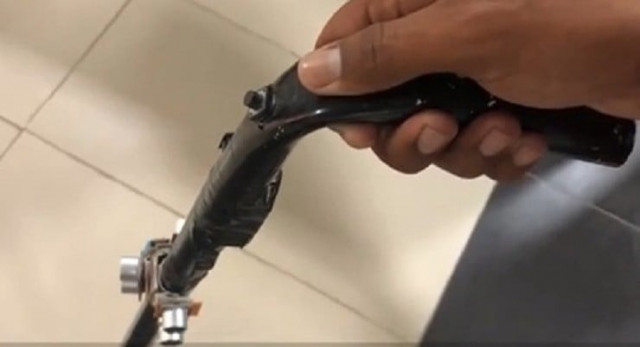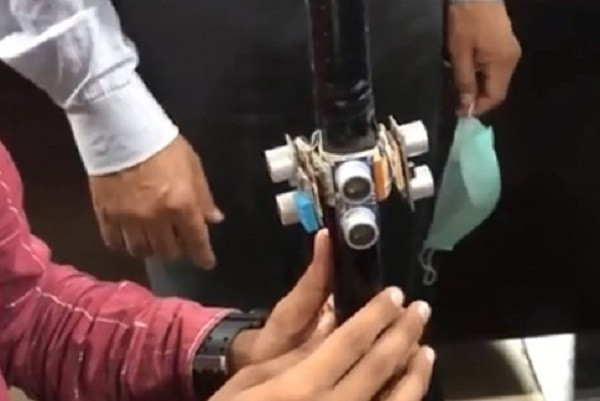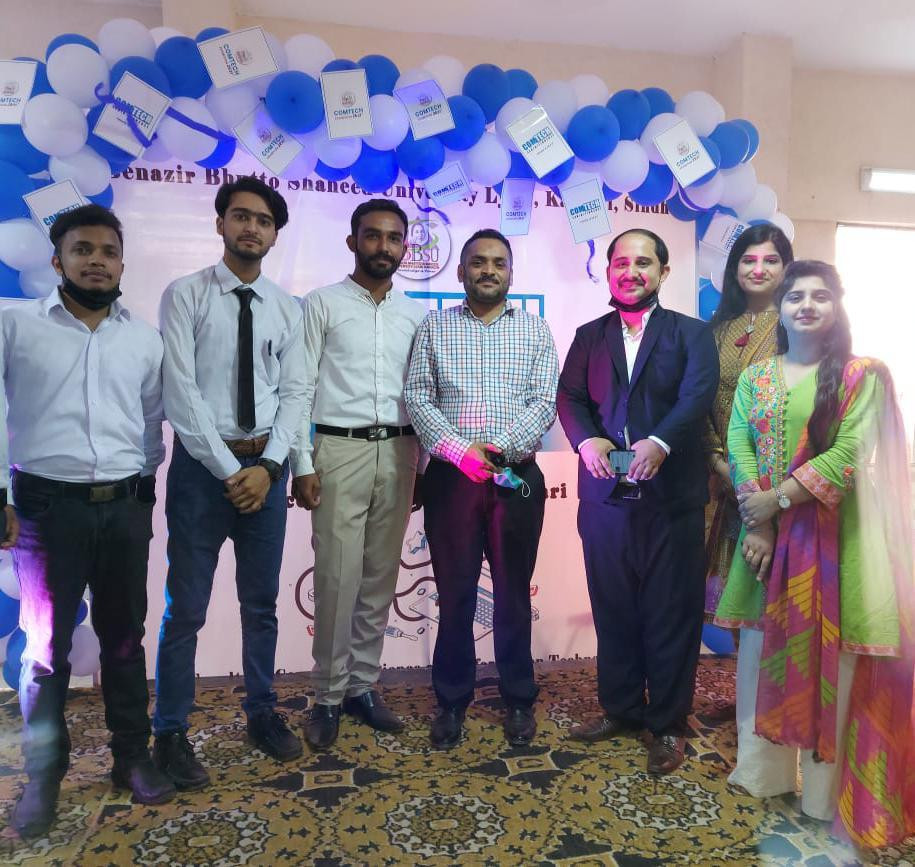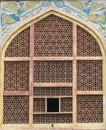'Magic wand' to guide visually impaired
Lyari students introduce digital walking stick with latest technology

The stick has been the most trusted guide for the visually-impaired, but couple it with technology and it becomes an altogether more powerful tool. That is what students of Lyari University's Information Technology Department have done by introducing the world's cheapest digital stick.
The team of students has developed a modern digital stick under the supervision of Dr Shafiq Awan and it costs a mere Rs3,000. It is operated through a mobile phone application which warns the visually impaired by informing them about obstacles in their way.
The stick also talks to you, digitally, in English, Sindhi and Punjabi besides Urdu. Other languages can also be programmed into it.

It comes equipped with a button which enables users to notify their family or friends through one press. Shehzad Ghulam Mustafa, Shehzad Munir and Mohammad Hamza Ali, are the designers of the stick and the mobile application.
Mustafa says that during the outbreak of coronavirus, when educational institutions were closed, they developed the application and stick in a period of three months under the supervision of their professor.
He continues that the stick employs four advanced ultrasonic sensors and it can be used for up to a week on a single charge. He adds that despite facing logistical problems due to the pandemic, the team has completed the project in a short time.
He claims that his team is keen to develop the stick on a commercial basis, but financial resources are scarce.

Mustafa believes that if the project is sponsored on a government level and assistance provided to import components, they can provide this stick to visually-impaired people for a mere Rs1,000. "We can also bring a good name to Pakistan by exporting this stick as well," he says.
He goes on to reveal that the team is upgrading the stick to further enhance its utility and soon a camera will be installed. The camera will use artificial intelligence to help the visually impaired by identifying objects or people around them.
Similarly, the stick will also use Google Maps to guide users to their destination.
Mustafa points out the next version will use a modern lens and sensors will be installed. He adds modern laser sensors will replace ultrasonic ones and provide higher range and accuracy in order to upgrade the 'magic wand'.
He applauds supervisor Dr Shafiq for constantly guiding them and the team is looking forward to introducing this project on a commercial basis.



















COMMENTS
Comments are moderated and generally will be posted if they are on-topic and not abusive.
For more information, please see our Comments FAQ